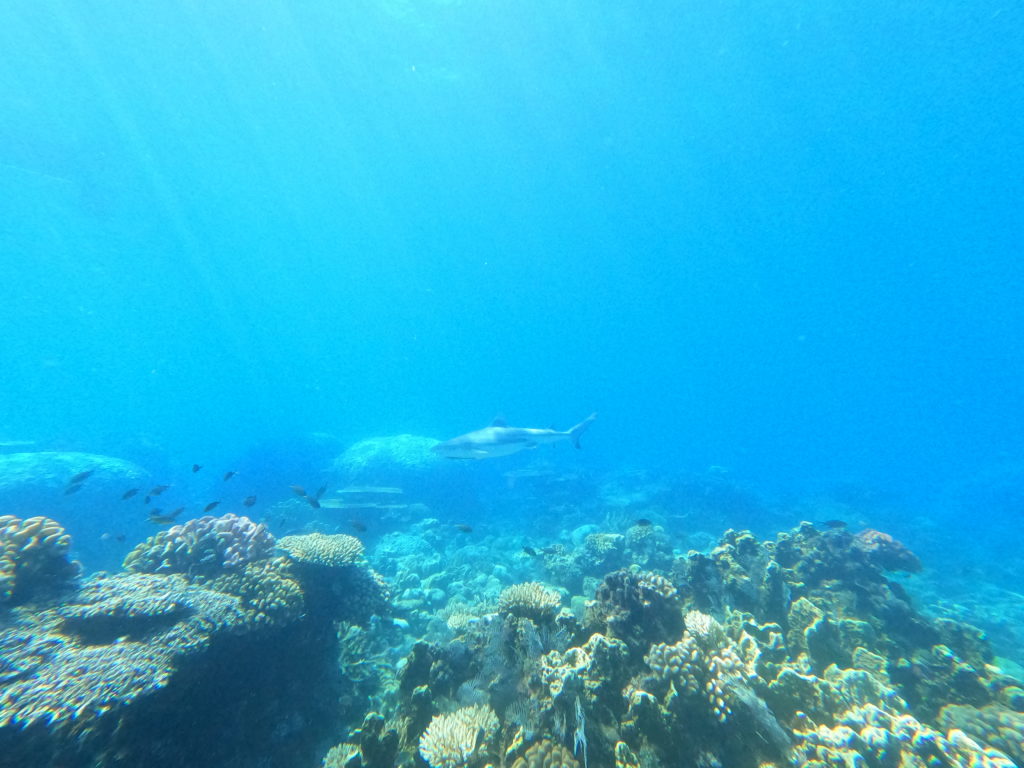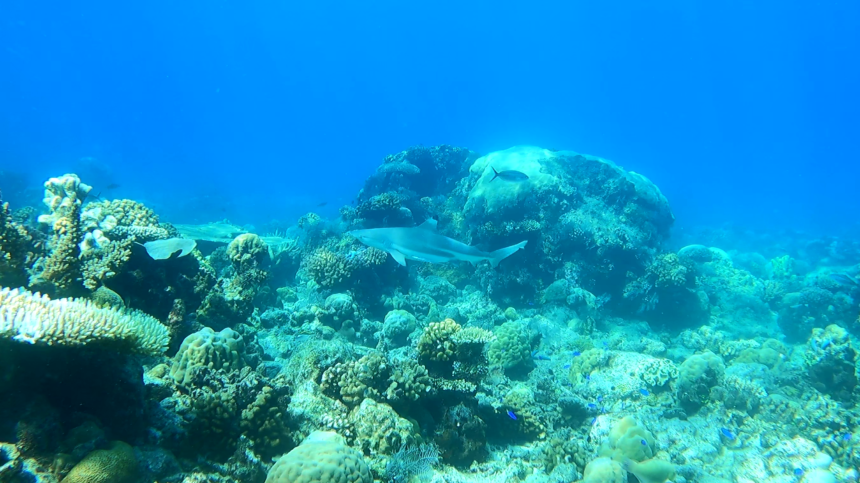In some countries in Asia, shark fin soup is still widely consumed and considered a luxury dish that contains plenty of nutrients for the body. Not only for the fins, sharks are also being hunted for their meat, liver oil, leather and cartilage, causing major overfishing and illegal fishing problems.
The truth is, consuming shark meat has no benefit to the body, and it might even be harmful. Decreasing shark populations in the wild is a serious threat to the environment and humans as well. Below we break down several important reasons why sharks are not to be killed and consumed:
Healthy marine ecosystems depend on sharks
Research done in North Carolina shows that a decrease in the great white shark population in the area causes an increase in stingray populations. Stingrays eat bivalves (clams, oysters and other members of mollusca), so when stingrays are in abundance in the ocean, bivalves will decrease significantly in numbers[1]. Bivalves are natural filter feeders that help clean the underwater world, without them, photosynthetic aquatic biota like coral reefs and seagrasses will decrease and even die.
Economic Benefits
Shark watching is a profitable tourist attraction. Globally the activity generates more than USD 314 million per year and provides around 10,000 jobs. In Indonesia alone, the average annual expenditure of shark tourism was estimated to be around USD 22 million in 2017, 1.45 times higher than the annual expenditure of shark exporting business[2].

Many species of sharks are facing extinction
The global shark populations have fallen by 71% since 1970, out of 31 species of oceanic sharks and rays, 24 of them are facing extinction and three species are in the critically endangered category. Research conducted over the past seven years at 371 coral reef sites in 58 countries finds that virtually sharks do not appear in 20% of survey sites[3]. The main reason for the decline in the shark population is due to the high demand for shark fins which causes overfishing. Other factors causing the decline are shark bycatch and habitat degradation.
Health problems
As the top predator in the food chain, sharks have high levels of mercury in their body. All organisms are prone to bioaccumulate toxins from their environment through eating prey that contains toxins and through passive absorption from the environment. Moreover, mercury accumulated in the body of an organism is difficult to excrete. Animals on the higher food pyramid will likely have higher concentrations of toxins than lower trophic level species[4]. Mercury contamination in a shark can occur through the consumption of contaminated prey, skin penetration and even breathing.
In Indonesia, the mercury content found in pelagic thresher shark (Alopias pelagicus) and sliteye shark (Loxodon macrorhinus) has exceeded the quality standard set by the Joint FAO/WHO Expert Committee on Food Additives (JECFA)[5]. Mercury exposure, no matter how big or small can damage the nervous system, cause cardiovascular diseases, infertility, and alter brain functions[6].
Sources:
[1] Myers, R.A., et al. 2007. Cascading effect of the loss of apex predatory shark from a coastal ocean. Science 315, 1846
[2] Mustika, P.L.K., et al. 2020. The economic value of shark and ray tourism in Indonesia and its role in delivering conservation outcomes. Front. Mar. sci. 7:261
[3] MacNeil, M. A., et al. 2020. Global status and conservation potential of reef sharks. Nature
[4] https://saveourseas.com/update/seafood-mercury-and-bioaccumulation
[5] Zulfahmi I, Nasution DN, Nisa K, Akmal Y. 2020. Kandungan logam berat pada hiu tikus (Alopias pelagicus) dan hiu kejen (Loxodon macrorhinus) dari Pelabuhan Perikanan Samudera Lampulo, Banda Aceh. Jurnal Pengolahan Hasil Perikanan Indonesia. 23(1): 47-57
[6] Soest, Nadja. 2016. Methylmercury concentrations in shark fins from the Hong Kong and Chinese shark fin market and related health risks for human consumption. Marine Resource Development & Protection. Heriot-Watt University, Edinburgh

